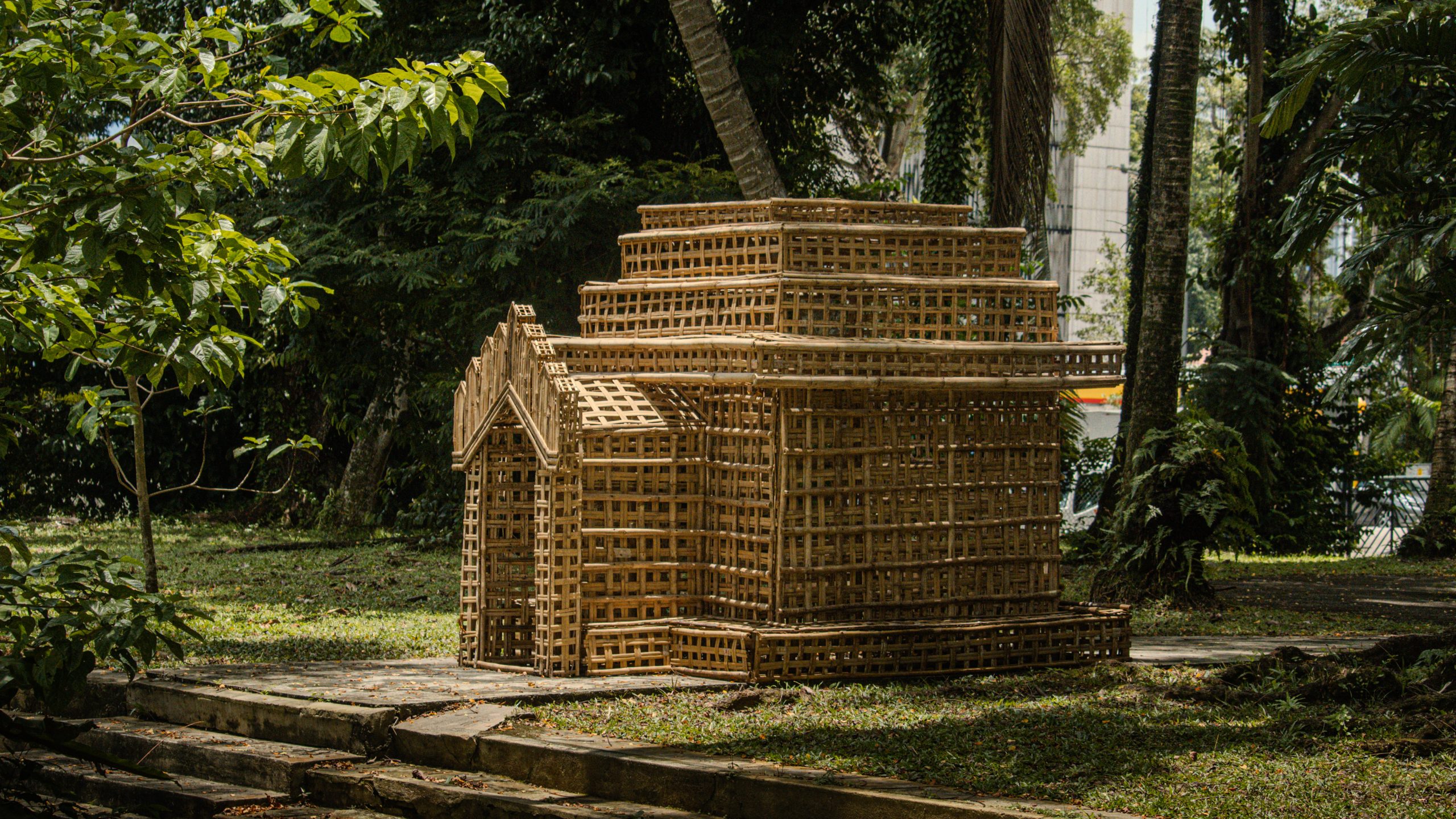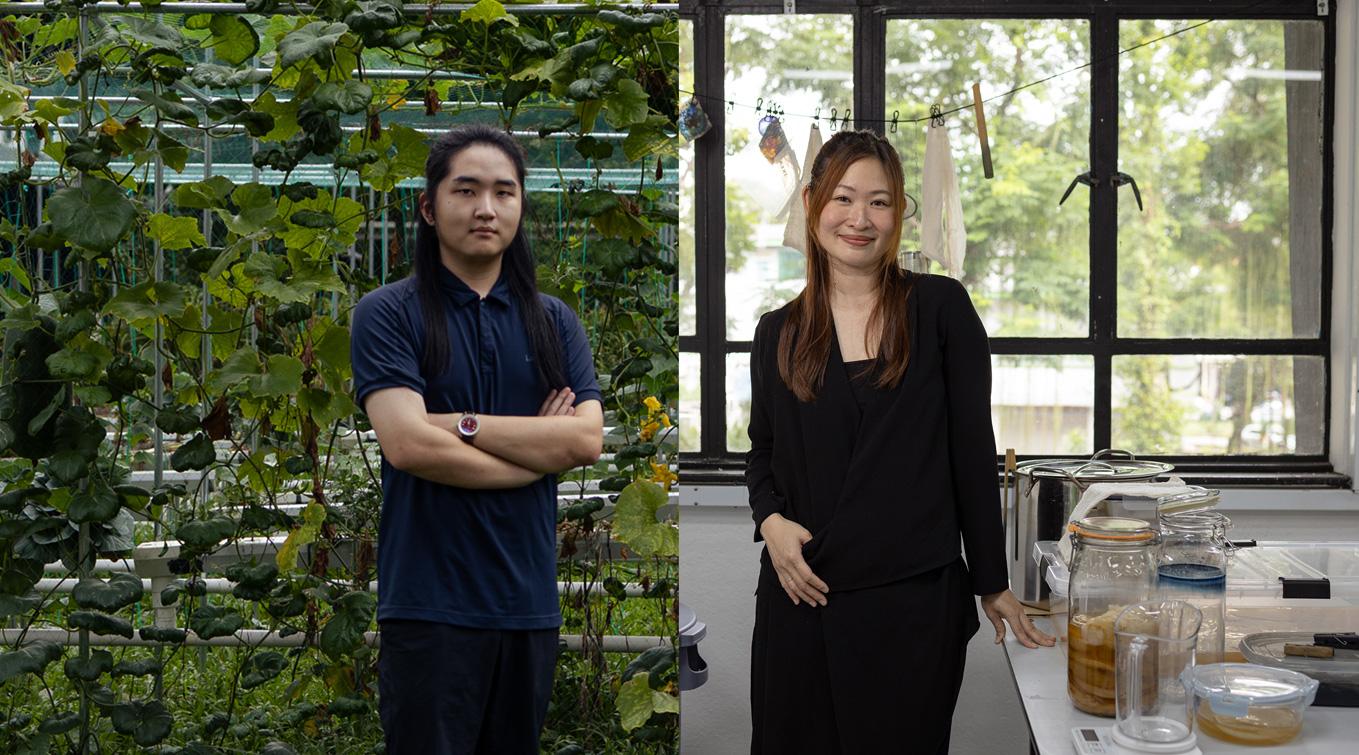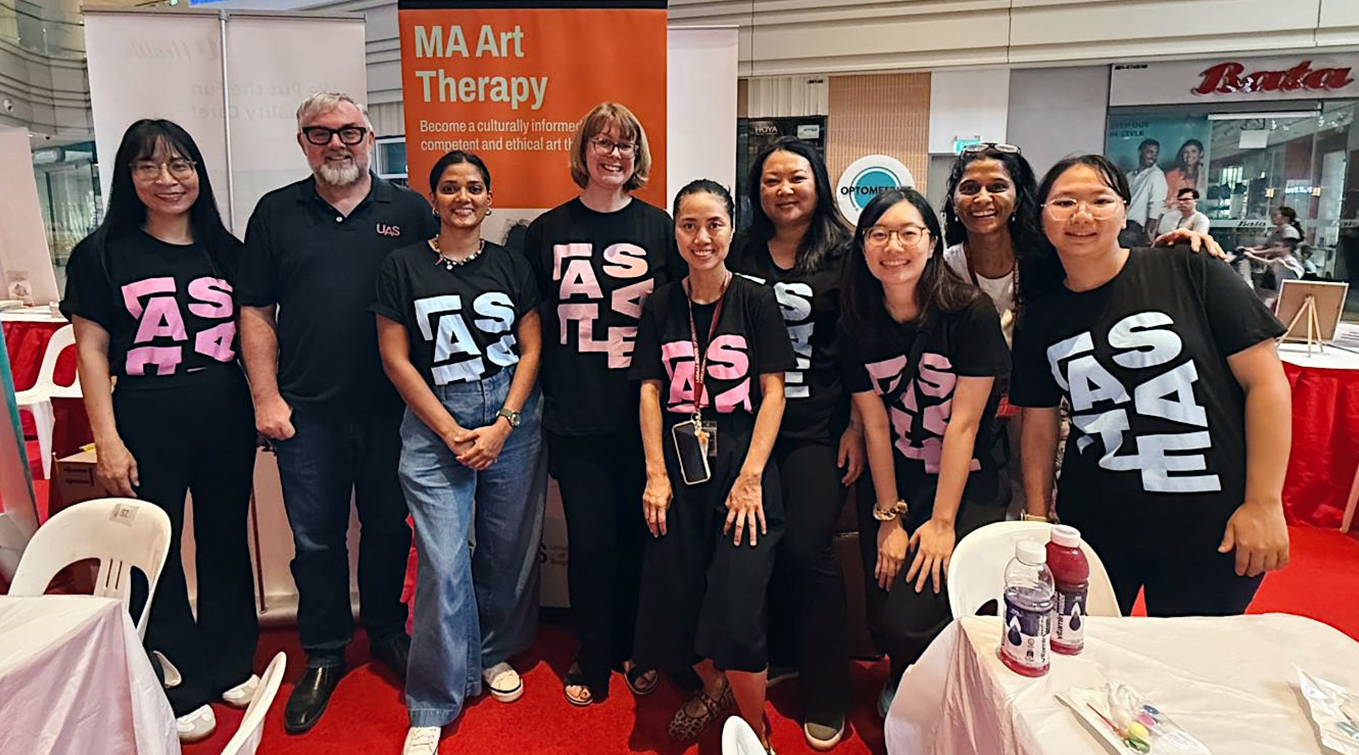In conversation with: Ian Goh on how his MA journey helped him fulfil his lifelong dream of becoming a video game writer
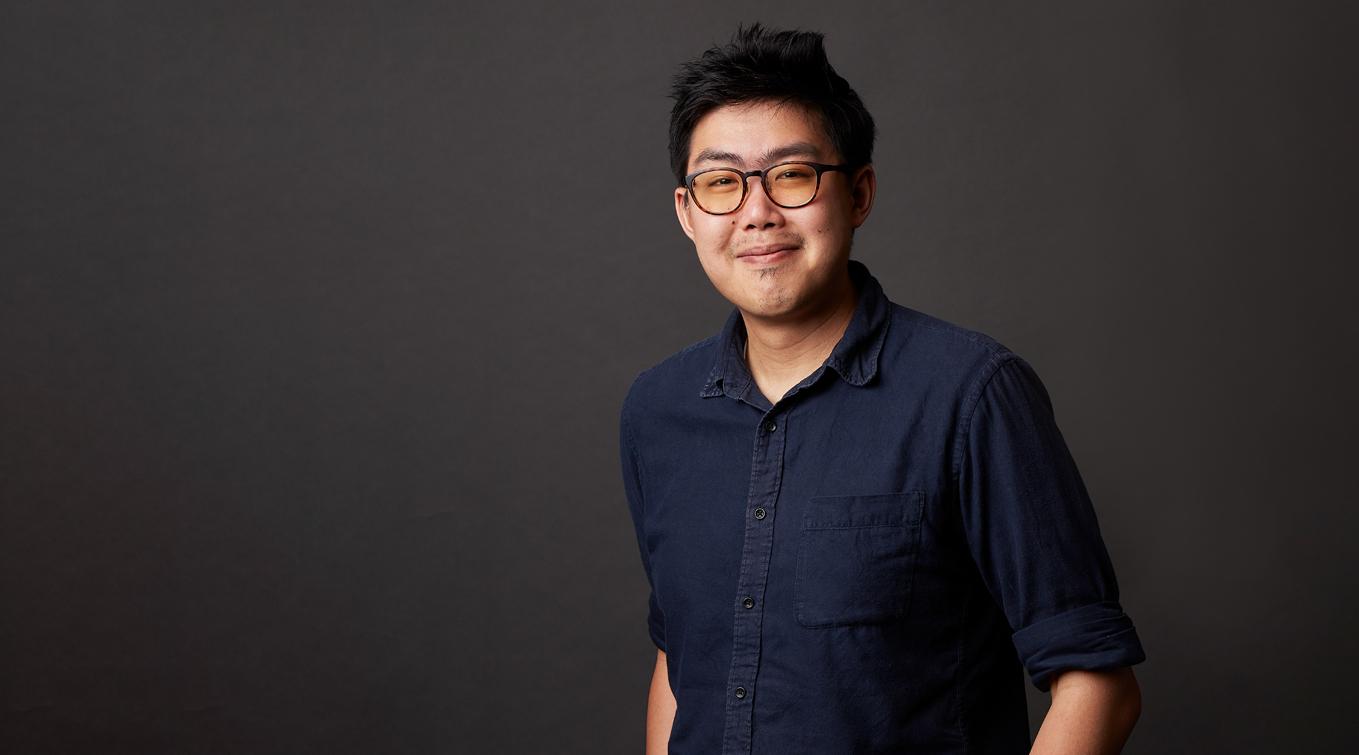
While most of his peers in LASALLE’s MA Creative Writing programme chose to work on a novel, plays or poetry for their thesis project, Ian Goh set himself a unique challenge: to develop a video game script which incorporated branching questlines, character dialogues and in-game cinematics. Working on a video game script was the culmination of Ian’s MA journey as he had initially applied to the programme with the ultimate dream of working in game writing full time.
Having close to zero experience writing for games, Ian worked closely with thesis supervisor Joel Janisse, a narrative director at Ubisoft Singapore, reframing how storytelling and structure had to be designed for the game medium. The result was third-person action role-playing game Shiroshi 2142, set in a dystopian cyberpunk universe where dreams are bought and sold as commodities. The player takes on the in-game role of Detective Kryst Fawn, a Dreamcatcher wrongfully framed for the murder of her mentor and driven to clear her name and discover the truth.
In some ways, this process of being mentored by Joel served as an extended job interview of sorts. Following a stint as a creative writing teacher at School of the Arts, Ian joined Ubisoft Singapore this year as a script supervisor. We check in with Ian about what excites him about the video game medium and game writing, his journey thus far, as well as why writing needs to be cultivated, not just taught.
1) What excites you about game writing and storytelling in games?
Writing for games combines traditional elements and skills of storytelling. For example, knowing how to structure a short story is essential to designing an effective questline. Having an ear for character dialogue (a skill needed for dramatic writing) helps you to write scenes and in-game cinematics.
Also, storytelling in games offers you multiple venues and scopes for expression – from the sweeping Poetic Edda in a game like Assassin’s Creed: Valhalla to more personal narratives in indie titles like Before Your Eyes, the video-game medium is flexible, complex and tailored for a diverse audience.
I see game writing as a synthesis of what I’ve learned over the years and working in a AAA studio is the best way to put those skills to use.
2) Even though the MA curriculum doesn’t have a game writing module, what did you hope to get out of your MA experience? And how did the experience measure up?
My MA Creative Writing experience was necessary for laying foundational writing skills: I learned about characterisation and conflict from Dr Darryl Whetter’s Story module, how to find your own poetic voice from Dr Chris Mooney-Singh, and that sometimes less is more in visual storytelling from mentors like Ng Swee San.
Throughout the programme, I also had the privilege to meet with and learn from industry professionals like Faith Ng, Ian Fun and Daljit Nagra. These rare opportunities were eye-opening and aspirational and gave me the confidence to pursue my own artistic career.
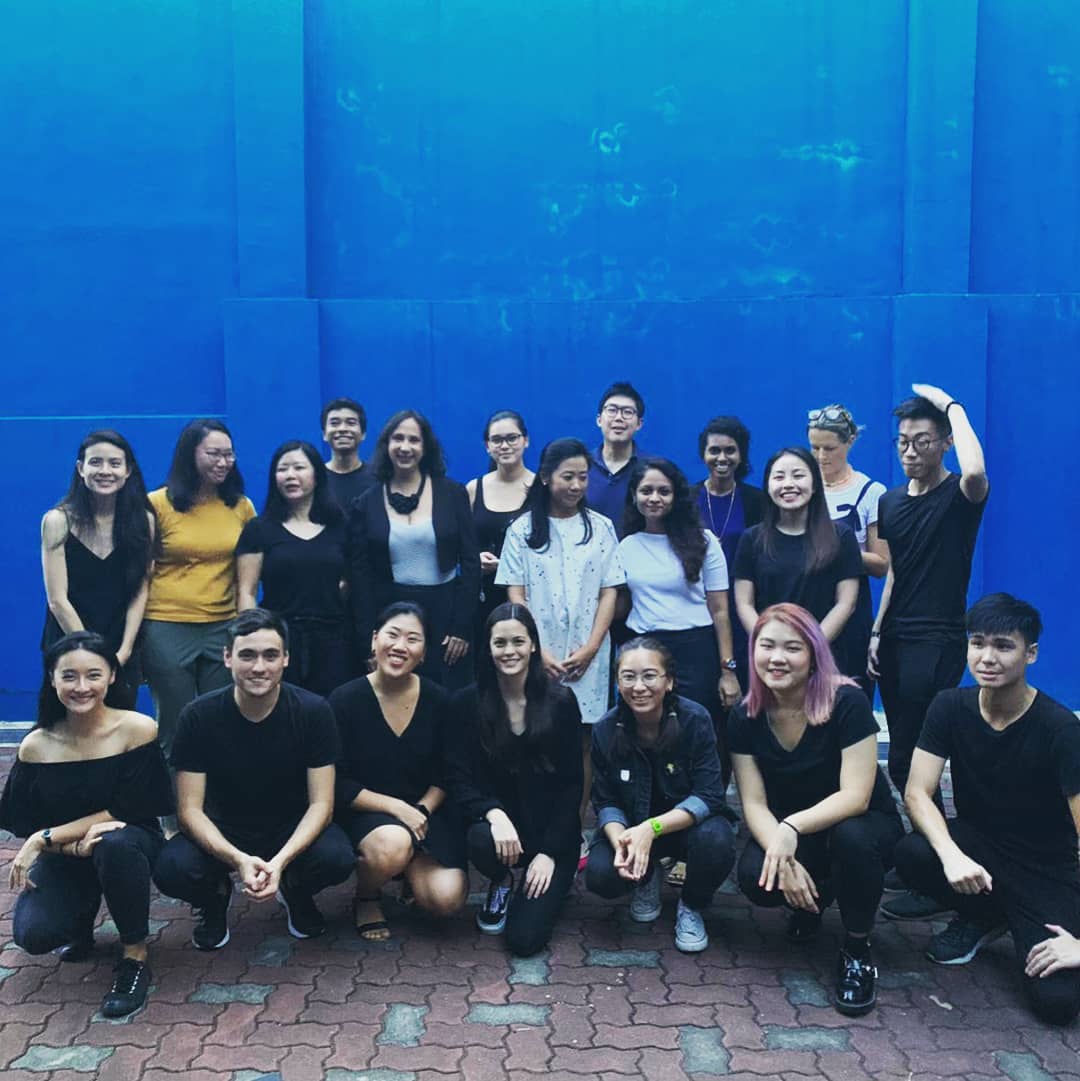
Ian with his classmates and BA(Hons) Acting students. The latter performed staged readings of the MA Creative Writing cohort’s dramatic writing.
3) You actually published a fair bit in journals during your time on the MA. Since you wanted to be a game writer, was publishing something you were thinking about?
You should see my pile of rejection letters! For every accepted piece of writing, I’ve probably been rejected at least five times. Even if you are targeting a niche audience, as I do with speculative fiction and poetry, there are still so many talented authors out there for editors to choose from. Honestly, I’m just glad when editors write back and say they liked my work even if it wasn’t for them – at least they took the time to read it!
Publishing, to me, has always been a ladder to climb – one shrouded in mystery and stereotypes. I may never reach the pinnacle and make millions of dollars of my work but climbing it has still been fun and personally rewarding. Currently, I’m working on a manuscript of speculative poetry, and the process of editing one’s work, curating its many pieces and peddling it to publishers has been enlightening.
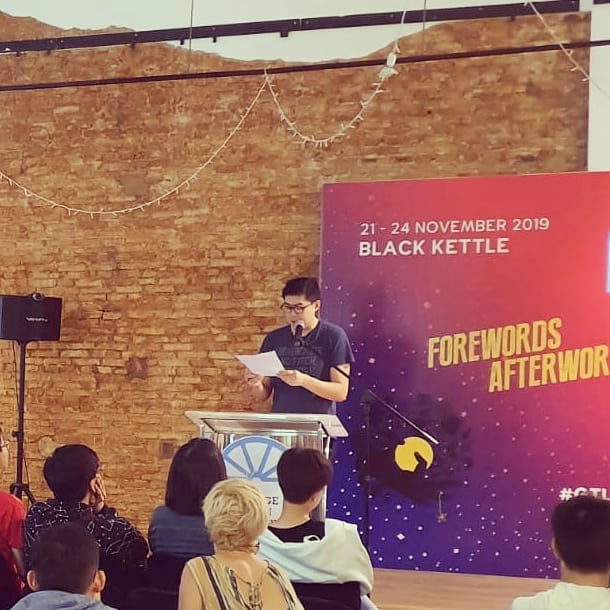
Ian reading his work at Georgetown Literary Festival 2019.
4) Was it a steep learning curve to write for a game? What did you learn from that experience that might have led to your current job now?
Overall, the experience was both surreal and enriching. Drafting my thesis in the middle of the COVID-19 pandemic also meant that I alternated weeks between writing and receiving feedback. Despite my lack of experience with writing for games, my thesis supervisor Joel was incredibly patient in walking me through the basics and explaining the implications behind certain creative choices. While both screenwriting and video-game writing utilise similar cinematic conventions, in a role-playing game there is the additional consideration of the player being a character, which required major shifts in how storytelling and structure had to be designed.
When I’d finally decided to transition into writing for games full-time, it definitely helped to have someone already working in the industry who could vouch for my writing credentials.
5) You worked as a teacher of creative writing at SOTA shortly after graduating from LASALLE. What, in your experience, is the value of creative writing, especially for young people?
For young people especially, writing is a way to express themselves in a frequently expressionless environment. Beyond their busy work as students, they face the pressures of an increasingly volatile world and a future heading out into sterile work environments. So the opportunity to create something unique and entertaining for yourself and others is not something most teenagers, or adults, get to experience in the local context.
Besides the skills associated with creative writing, my hope as a teacher was to inculcate the act of writing as uplifting to the writer and others. Through exercising a creative mindset, students should begin to see the writing process as cathartic, inspirational and a way to process the world around them. As a result, some of my most meaningful moments as a teacher occurred during conversations with students – about why they wrote what they did, how it made them feel and what they hoped to achieve through their writing.
6) Having been both a teacher and student of creative writing, what’s your stance on that old chestnut, ‘Can writing be taught?’
My short answer is, ‘Writing needs to be cultivated.’ To cultivate something is to benefit and improve upon a foundation, but to also do so with care, patience and diligence. A teacher, for example, may impart knowledge and skills of writing conventions, but the actual practice of writing must be undertaken by the students themselves, and then encouraged, refined and supported along the way.
As a student of the MA Creative Writing programme, I was immensely grateful to have had such nurturing teachers and mentors who aided me on my journey. One day, I hope to emulate their generosity in my own teaching practice.
Apply now for our postgraduate programmes.




